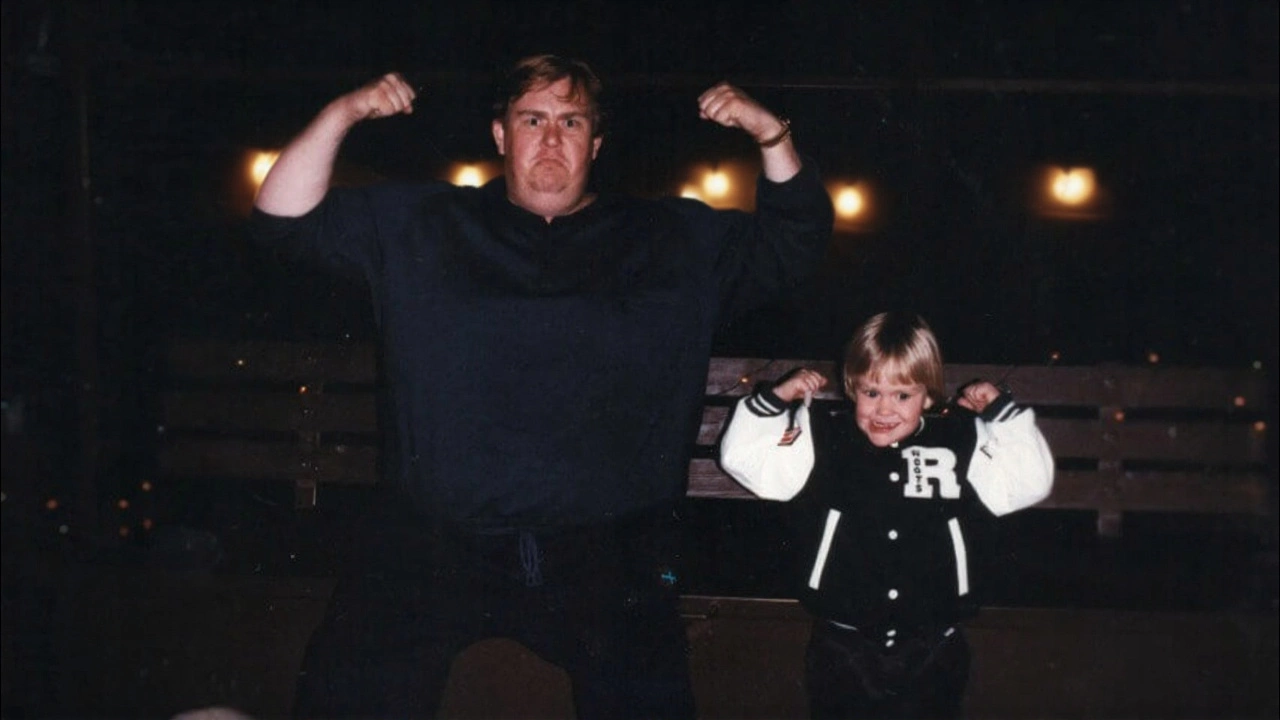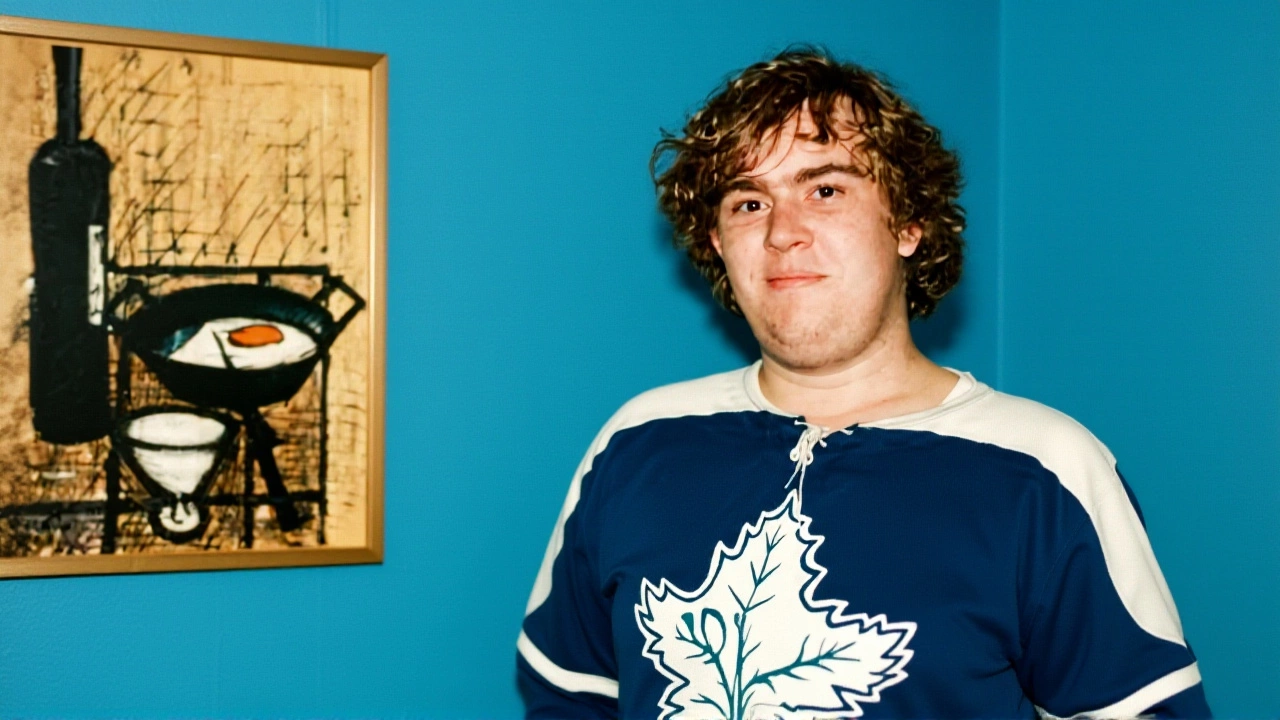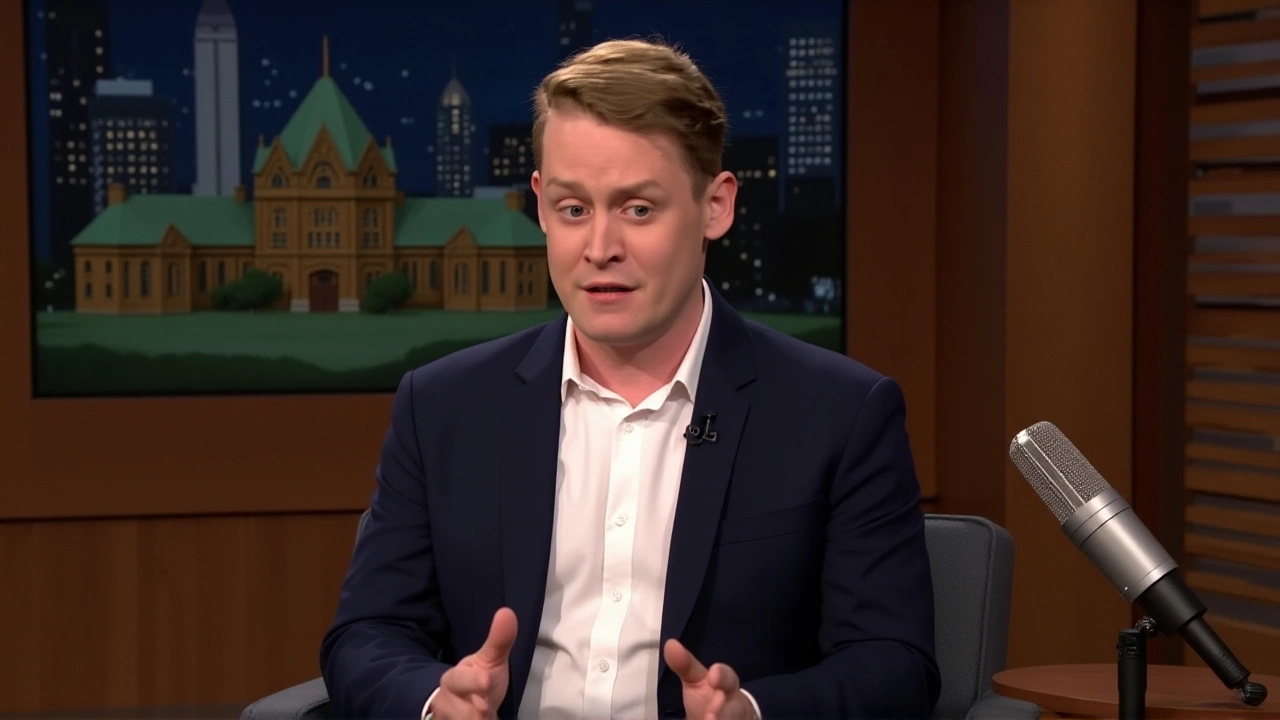When Macaulay Culkin stepped onto the stage after the world premiere of 'John Candy: I Like Me'Toronto at the Toronto International Film FestivalToronto on September 4, he didn’t talk about comedy, or stardom, or even the iconic role that made him a household name. He talked about a quiet moment—nine years old, tired, scared—and the man who noticed.
A Monster in Plain Sight
Culkin, now 45, didn’t mince words. His father, Christopher Cornelius 'Kit' Culkin, he said, was already a monster before Home Alone turned him into a billionaire’s child. "It was no secret," Culkin told the audience. "He was already not a good guy." The fame, the $2.3 million he earned from the first Home Alone alone, didn’t create the abuse—it amplified it. "All of a sudden, the fame and the money came, and he became an... infamous monster," Culkin said. By the time he was 15, he’d petitioned a Los Angeles court to strip his parents of legal guardianship—a move that ended their financial control over his earnings and marked the beginning of a silence that’s lasted over 30 years.The Quiet Hero Who Noticed
But here’s the twist: while the industry looked away, one man didn’t. John Candy, the beloved Canadian comic actor known for Planes, Trains and Automobiles and Spaceballs, was filming Uncle Buck in 1989 with a nine-year-old Culkin. Candy didn’t confront Kit Culkin. He didn’t make a scene. He just… checked in. "I think John was looking a little side-eyed," Culkin recalled, mimicking Candy’s gentle, almost casual tone: "Is everything alright over there? You doing good? Good day? Everything’s alright? Everything good at home? Alright." Those weren’t just polite questions. They were lifelines. In a world where child stars were treated as assets, Candy treated Culkin like a kid. "I wish I had got more of that in my life," Culkin said, voice cracking slightly. "It’s important that I remember that. I remember John caring when not a lot of people did."
Why This Matters Now
Culkin’s testimony isn’t just personal—it’s a damning indictment of Hollywood’s long-standing blind spot. For decades, child actors were seen as extensions of their parents’ ambitions. Financial exploitation was common. Emotional neglect was routine. And when red flags flew? Often, they were ignored. Or worse—normalized. Culkin’s case wasn’t unique. Jodi Foster spoke of similar pressures as a child star. Drew Barrymore detailed her father’s substance abuse and manipulation in her memoir. But what sets Culkin’s story apart is the quiet, uncelebrated heroism of Candy. He didn’t have power. He wasn’t a producer or a studio exec. He was just a guy who cared enough to ask.The Legacy of a Gentle Giant
John Candy died in 1994 at age 43, while filming Wagons East! in Mexico. He never saw Culkin’s rise to adult fame, never knew the full extent of the trauma he’d witnessed. He never got to hear how his small acts of kindness became a compass for a boy who felt utterly alone. The documentary 'John Candy: I Like Me'Toronto doesn’t just celebrate Candy’s comedy—it reveals his compassion. And in doing so, it forces a reckoning: How many other children were suffering in plain sight? And how many more never had a John Candy to notice?
What’s Next?
The film is set for wider release later this year, though no distributor has been officially announced. Culkin has said nothing about future projects, but his public remarks suggest this isn’t about fame anymore—it’s about truth. And truth, he seems to be saying, is the only thing that can heal.Frequently Asked Questions
How did John Candy’s actions contrast with Hollywood’s treatment of child actors at the time?
While studios and producers often prioritized profit over child welfare, Candy’s behavior stood out because he treated Macaulay Culkin as a person, not a commodity. He didn’t report the abuse to authorities—he didn’t need to. He simply asked if everything was okay, creating a rare space of safety. This contrast highlights how systemic neglect was: even visible signs of distress were routinely ignored by those in power.
What legal actions did Macaulay Culkin take against his parents?
At age 15, in 1995, Culkin successfully petitioned a Los Angeles court to remove both his parents as his legal guardians, citing financial exploitation and emotional abuse tied to his earnings from Home Alone and other films. The court granted his request, allowing him to manage his own finances and sever legal ties—a rare and bold move for a minor at the time.
Why is the timing of Candy’s intervention significant?
Candy noticed Culkin’s distress in 1989, before Home Alone became a global phenomenon in 1990. This proves the abuse predated fame and money—it wasn’t the result of stardom, but its catalyst. Candy’s early intervention makes his compassion even more remarkable, as he acted before the industry’s spotlight made the situation harder to ignore.
Has Macaulay Culkin spoken about his father since then?
Culkin confirmed he has had no contact with his father for over 30 years. He has never publicly reconciled with Kit Culkin, who died in 2020. His recent statements in the documentary mark his most candid and emotionally raw public accounting of the abuse, signaling a shift from silence to testimony as a form of healing.
What does this reveal about child actor protections today?
Despite reforms like Coogan Laws in California, enforcement remains inconsistent. Many child actors still rely on parents or managers who may have financial conflicts of interest. Culkin’s story underscores that even with legal safeguards, emotional and psychological protection depends on individual vigilance—something Candy provided instinctively, and the system still often fails to replicate.
Is there a chance the documentary will be widely released?
While no distributor has been officially named, the emotional resonance of Culkin’s testimony and Candy’s legacy suggest strong interest from streaming platforms and specialty distributors. The film’s premiere at TIFF—a major platform for award-season contenders—signals it’s likely to receive a broader release before the end of the year.
